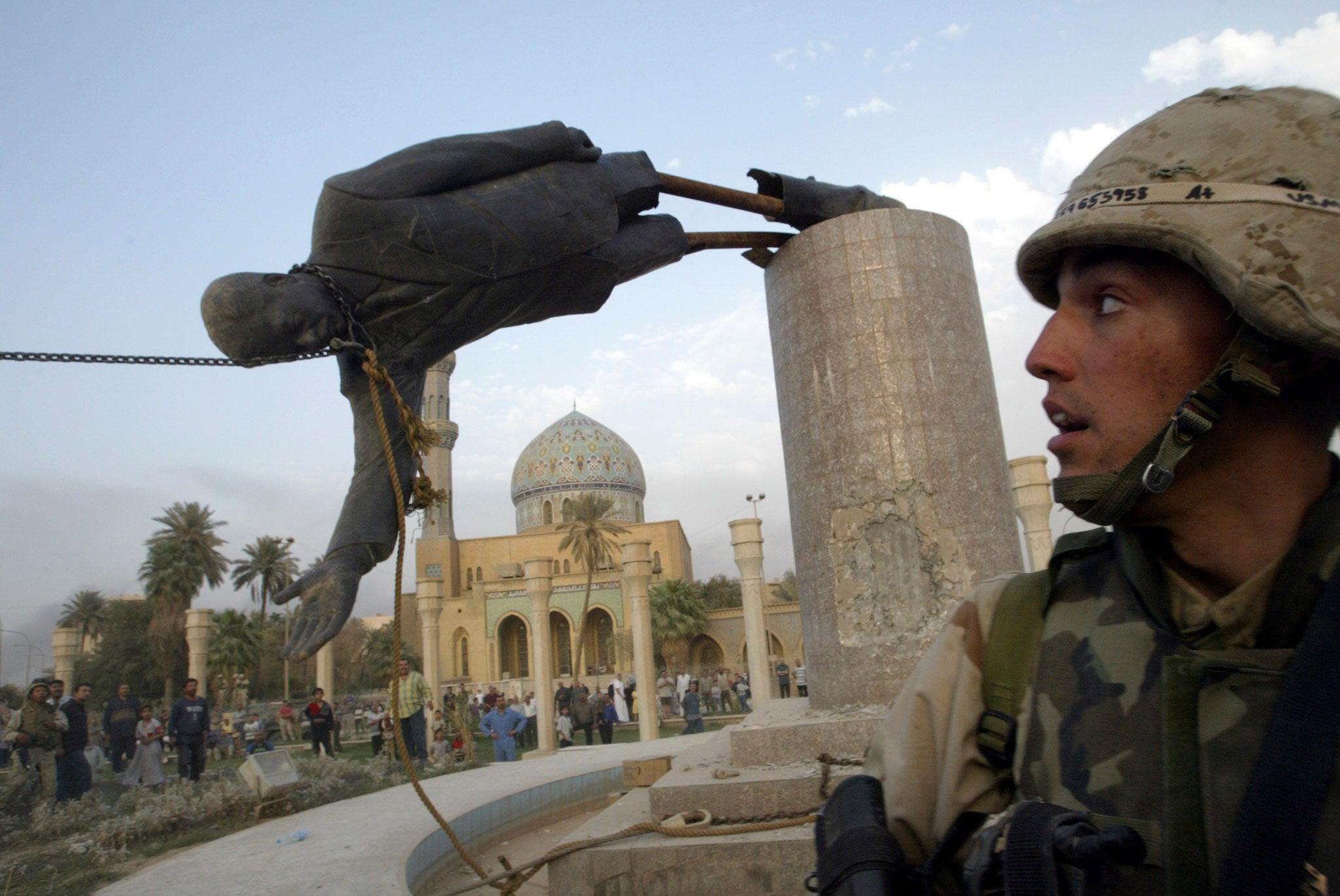Baghdad Central by Elliott Colla, book review: A murder mystery set in post-Saddam Baghdad is as good as it is daring

Your support helps us to tell the story
From reproductive rights to climate change to Big Tech, The Independent is on the ground when the story is developing. Whether it's investigating the financials of Elon Musk's pro-Trump PAC or producing our latest documentary, 'The A Word', which shines a light on the American women fighting for reproductive rights, we know how important it is to parse out the facts from the messaging.
At such a critical moment in US history, we need reporters on the ground. Your donation allows us to keep sending journalists to speak to both sides of the story.
The Independent is trusted by Americans across the entire political spectrum. And unlike many other quality news outlets, we choose not to lock Americans out of our reporting and analysis with paywalls. We believe quality journalism should be available to everyone, paid for by those who can afford it.
Your support makes all the difference.it's an act of literary daring to set a murder mystery amid the hell of post-invasion Iraq. In a city choked by bodies any conventional story would seem a cosy piece of trivia. But Colla, who teaches Arabic literature at Georgetown University, has created an utterly convincing character, Inspector Muhsin al-Khafaji , technically a deserter from the Iraqi police who is wrongly identified as a high-ranking official under Saddam's rule.
Captured and tortured in Abu Ghraib, Khafaji is offered a way out if he will agree to work for the Americans by training new recruits, since the invaders have discovered that disbanding former security forces has resulted in utter chaos and they must re-create a form of law enforcement. The newly promoted policeman is sent to Kurdistan to train new recruits, an episode of sharply noted dark humour: witness the speeches where it makes no difference what the interpreter says, since the message is always that things are going to get better.
Khafaji has an agenda of his own. At the top is the urgent need to provide his daughter with medical treatment. She has been suffering from kidney failure, and because of the sanctions imposed on Saddam's Iraq, the hospitals have been deprived of even the most basic supplies, with doctors forced to operate without anaesthetics or antibiotics. He succeeds in making her treatment a condition of his co-operation and in getting access to the Green Zone within which lie all the luxurious privileges accorded to Westerners and to those Iraqis who appear useful to the new rulers.
But there is another quest in which Khafaji is engaged, one which puts a narrative of traditional crime fiction into the heart of this novel. His niece, who acted as an interpreter for the foreign troops, has gone missing. This is a common fate in Khafaji's Baghdad, but the Inspector nevertheless sets about the seemingly hopeless task of tracing her, which he describes as "a fool's errand with checkpoints". With no resources except his own wits he discovers that the girl was a member of a group led by the mysterious Zubeida, who provided protection for a band of women. As interpreters, they are viewed by the invading forces as untrustworthy and by the Iraqis as treacherous. But there's a deeper question: are they really translators, or are they being used for some darker purpose involving the "rest and recreation" of American soldiers?
The research that went into this book is so detailed that the question of why the author chose a fictitious form inevitably arises. We have heard about the brutality to which British and American forces descended, but fiction can convey it with an intensity no reportage can carry. We may read the horrible facts of water-boarding, but a novel can make us feel what it is actually like to undergo it. Colla does not minimise the cruelty of Saddam, but his replacement by another set of tormentors creates a despairing background, in which there are only two rays of hope. One is Khafaji's determination to get to his goal and the other is the Arab poetry quoted by Khafaji and his daughter giving interludes of imaginative vision. Iraq may be a failed state, but Arabic is a triumphant language.
Join our commenting forum
Join thought-provoking conversations, follow other Independent readers and see their replies
Comments